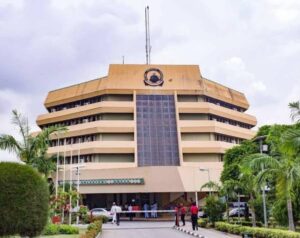The National Universities Commission (NUC) has officially recognized the establishment of Kwara State University of Education, Ilorin. This approval marks a new chapter in the state’s education system.

The formal recognition came during a brief ceremony in Abuja, where Mr. Chris Maiyaki, Acting Executive Secretary of NUC, presented the letter of recognition to Governor AbdulRahman AbdulRazaq’s representative, Deputy Governor Kayode Afolabi. This milestone followed the submission of three crucial documents: the law establishing the institution (passed by the Kwara State House of Assembly), the Academic Brief, and the Physical Master Plan.
The new university’s establishment is part of a broader trend in Nigeria’s higher education sector, which has seen rapid expansion in recent years. Of the 274 universities now operating in the country, 64 are state-owned, like the Kwara State University of Education, while 148 are private institutions. This growth reflects the increasing demand for tertiary education in Africa’s most populous nation.
However, the approval comes with challenges. Mr. Maiyaki emphasized the critical need for sustainable funding, a persistent issue in Nigeria’s university system. He urged Governor AbdulRazaq to provide robust financial and political support to ensure the new institution’s long-term success. “Funding is not negotiable,” Maiyaki stated, highlighting the importance of governors backing their universities to “stand the test of time.”
Deputy Governor Afolabi, speaking on behalf of Governor AbdulRazaq, expressed the state government’s commitment to improving tertiary education funding. He noted that the new university was established to expand access to quality higher education in Kwara State, aligning with the administration’s priority on education at all levels.
The transition from a College of Education to a full-fledged university status is expected to bring numerous benefits to Kwara State. It will likely increase the number of degree-holding graduates, potentially boosting the state’s human capital and economic prospects. Additionally, the university’s focus on education may help address the perennial challenge of teacher quality and availability in Nigeria’s school system.
However, the establishment of a new university also raises questions about resource allocation and the overall strategy for higher education in the state and country. Critics argue that instead of creating new institutions, efforts should focus on improving existing ones, many of which face infrastructural decay, staff shortages, and funding gaps.
As the Kwara State University of Education takes its first steps, stakeholders will be watching closely to see how it navigates these challenges. Its success could provide a model for other states looking to expand their higher education offerings, while its struggles could serve as a cautionary tale about the complexities of university establishment and management in Nigeria.
The coming months and years will be crucial as the university builds its academic programs, attracts faculty, and begins to produce graduates. The extent to which it can meet the educational needs of Kwara State and contribute to Nigeria’s broader development goals will be the true measure of its impact and the wisdom of its establishment.




